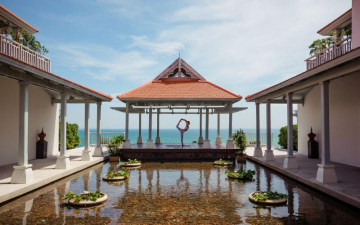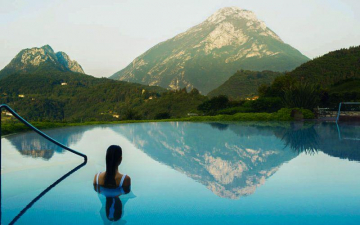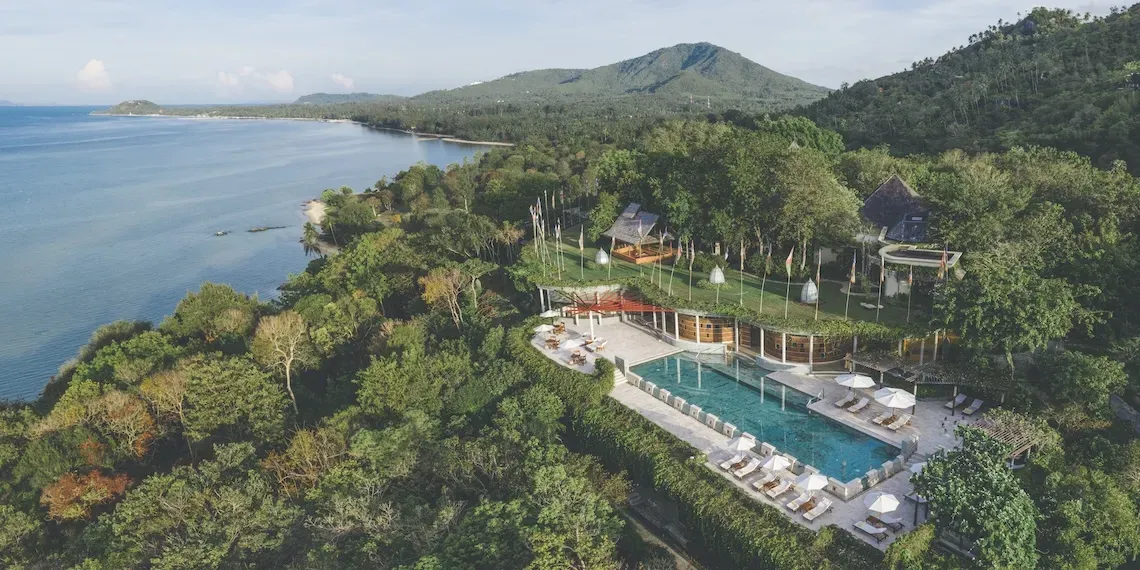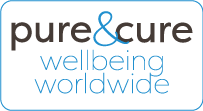Traditional Chinese Medicine
Insiders tips



Discover all our Traditional Chinese Medicine holidays

Take time for yourself, slow down and truly relax. These relaxation programmes calm body and mind and help you let go
For those looking to improve strength, posture and energy. These programmes combine movement with recovery to help you feel fitter and more flexible
Recharge yourself inside and out. These holistic programmes promote vitality, beauty and immune health

Boost strength, energy and balance through tailored training, nutrition and personal coaching, adapted to all fitness levels.
Cleanse your body and achieve sustainable weight loss through nutrition, science-based testing and holistic treatments. Ideal for long-term health goals.
Restore emotional balance and mental clarity with therapy, mindfulness and healing practices.
Clinically guided retreats to improve vitality, longevity and female health with personalised care.

Boost your health with programmes for sleep, heart, metabolism, diabetes and vitality. Holistic therapies restore balance in body and mind

Invest in long-term wellbeing with Advanced Longevity, Women’s Health or Cognitive Boost. Each programme enhances ageing, brain health or hormonal balance through personalised, cutting-edge care
Choose Detox & Optimal Weight or Gut Health. Cleanse your body, rebalance metabolism or restore gut health. Tailored therapies enhance digestion, weight and vitality through deep detox and metabolic reset.
Quit smoking naturally with expert medical care, personalised therapies and healthy habits that ease withdrawal, prevent relapse and boost motivation
Recharge and rebalance. Rebalance & Energise boosts your energy at a cellular level, while Sleep Well addresses the root of sleep issues. Both help restore vitality and promote deep, lasting rest
Not ready to commit to a programme? Book your stay your way and personalise your SHA journey on-site with help from the expert team

In a world full of stimuli and responsibilities, mental resilience is essential. Whether you want to manage stress, improve your focus, or are in need of deep relaxation, here you'll find programmes designed to help you unwind

Whether you seek deeper sleep, more energy, inner balance or stress relief, these tailored journeys calm the mind, recharge the body, and renew your sense of wellbeing.
A holistic approach to women’s wellbeing. Tailored therapies support hormonal balance, vitality and emotional health at every life stage, helping women feel energised, radiant and in harmony
What is Traditional Chinese Medicine
Traditional Chinese medicine (TCM) is a form of medical practice that has been used in China for thousands of years. It is based on the concept of Qi (pronounced "chee"), which is the vital energy that flows through the body's meridians or pathways. TCM includes a range of practices, including acupuncture, herbal medicine, cupping, moxibustion and dietary therapy. It is a holistic approach to health, treating not just the physical symptoms of a condition, but also the emotional and spiritual aspects of a person's health. There is a growing body of research that suggests TCM can be an effective complement to Western medicine in treating a range of health conditions. In TCM, the focus is on maintaining balance and harmony within the body, rather than just treating specific symptoms or diseases. Practitioners use a variety of diagnostic techniques, including pulse and tongue diagnosis, to determine imbalances in the body's Qi and develop a personalized treatment plan.
Traditional Chinese Medicine has a holistic approach and looks at body and mind as one. A person is therefore considered a complex entity of matter, energy and spirit that is constantly developing and subject to change. All parts are connected: the mind affects the body, whereby mental and psychological problems can be expressed in the body. And vice versa, the body affects the mind, with mental issues causing physical ones.
TCM has always considered stress the primary cause of disease. This philosophy makes TCM a suitable method for tackling issues of modern-day life. These days, more and more people are suffering from stress-related ailments, such as tension, anxiety, sleeping issues, digestive complaints, obesity, etc. From a traditional-Chinese-medicine perspective, they can be treated at the root of the cause. At a holistic health or wellbeing resort, mostly located in stunning and relaxing locations and allowing you to focus fully on treating your issues and complaints.
What is Classical Chinese Medicine
Classical Chinese medicine (CCM) is a term used to describe a theoretical framework and approach to traditional Chinese medicine (TCM) that emphasizes the study and application of ancient Chinese medical texts and philosophies. In contrast to modern TCM, which has undergone significant changes and standardization over the past century, CCM places a greater emphasis on individualization and tailoring treatments to the unique needs of each patient. Practitioners of CCM may also rely on more classical diagnostic methods, such as pulse diagnosis and observation of the tongue, to assess a patient's health and develop a treatment plan.
CCM also places greater emphasis on the importance of the practitioner's own cultivation of qi (vital energy) and spiritual awareness as part of the healing process. In addition to the use of acupuncture, herbal medicine, and other TCM modalities, CCM may incorporate practices such as meditation, qigong, and tai chi as part of a patient's treatment plan.
What are the components of Traditional Chinese Medicine
Traditional Chinese Medicine is a comprehensive system of medicine that has been used for thousands of years to diagnose and treat various health conditions. An important aspect of a TCM treatment plan is energy work. Tuina massage is an important element within Chinese medicine, just as acupuncture and foot reflexology. These treatments release blocked energy and allow it to flow again. Hydro-aromatherapy helps the meridians to circulate and restore energy and vitality. A third element is physical activity. Qi gong, tai chi and special stretching exercises help to balance energy.
We listed the components of TCM:
- Acupuncture: This involves inserting thin needles into specific points on the body to stimulate and balance the flow of qi (pronounced "chee"), or energy, in the body.
- Herbal medicine: TCM uses a variety of plant-based remedies, including herbs, roots, and other natural substances, to treat illnesses and promote overall health.
- Massage and bodywork: TCM includes a range of massage and bodywork techniques, such as acupressure, cupping, and gua sha, which are designed to stimulate circulation and relieve tension in the body.
- Healthy food: TCM emphasizes the importance of a healthy diet in maintaining good health and preventing illness. Dietary therapy involves using food as medicine to support the body's natural healing processes.
- Exercise and movement therapy: TCM includes various forms of exercise and movement therapy, such as tai chi and qigong, which are designed to promote physical and mental health by improving circulation, balance, and flexibility.
- Mind-body practices: TCM recognizes the interconnectedness of the mind and body and includes practices such as meditation and visualization to promote emotional and mental balance, as well as overall health and wellbeing.

 EN
EN NL
NL BE
BE







